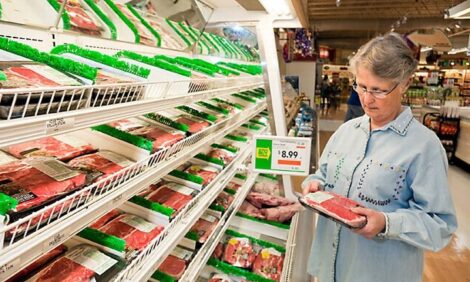



AFBF: Livestock Antibiotic Proposals Based on Theory
US - Citing a lack of data to support limiting antibiotic use in livestock, the American Farm Bureau Federation has told the Food and Drug Administration (FDA) that it is concerned with proposals that would restrict antibiotic use based on unproven theory.AFBF submitted comments to FDA on two proposals made by the agency earlier this year. According to FDA, the agency is taking action to help preserve the effectiveness of medically important antimicrobials for treating disease in humans, but FDA has not demonstrated whether the actions will have any effect on antibiotic resistance, AFBF said.
“AFBF agrees that human antibiotic resistance is a serious and growing healthcare problem. Developing strategies for reducing antimicrobial resistance is critically important for protecting both public and animal health,“ said AFBF President Bob Stallman. “However, we are extremely concerned with FDA actions, which seem to indicate the agency is basing complex animal health policies on theory, rather than sound scientific studies.“
According to AFBF, FDA intends to curb antibiotic use in livestock without fully understanding the impact on public health. There have been no peer-reviewed scientific studies to support the theory that judicious use of antibiotics in livestock increases antibiotic resistance in humans. In addition, there is no data to indicate that limiting antibiotic use in livestock decreases human health problems with antibiotic resistance.
“Antibiotics in livestock are currently used carefully in a highly-regulated process,“ said Mr Stallman. “FDA has and continues to exercise the authority to review every animal health product, including antibiotics, prior to approval, and at periodic intervals after the product is on the market. These regulatory and industry layers of protection are based on years of data collection, and products available to livestock caretakers today have gone through rigorous and continuous scientific testing,“ AFBF asserted.
AFBF believes it is imperative that any new policies relative to antibiotics be grounded in data and reflective of the realities of the diversity of modern animal agriculture production, Stallman said. The limitation or elimination of animal antibiotic use in the livestock industry will have negative economic and animal health consequences.
“Food animal producers have relied on the benefits of antibiotics for many years to keep animals healthy, reduce environmental impact on land and resources, and provide consumers with an abundant supply of safe and affordable meat and poultry,“ continued Mr Stallman. “Any changes in availability of these products must be undertaken carefully to reduce unnecessary negative impacts to animals, producers and veterinarians.“








